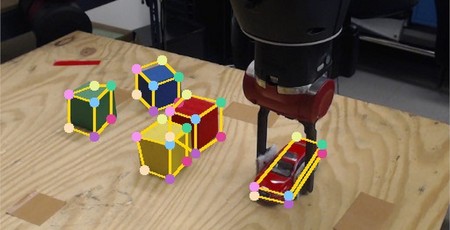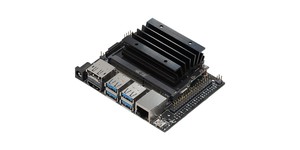Nvidia opens UK AI innovation Centre
June 20, 2019 | 10:10
Companies: #hartree-centre #nvidia #univeristy-of-edinburgh #university-of-reading

Nvidia has announced the launch of a 'technology centre' through which it aims to foster artificial intelligence (AI) and data science research and education in the UK, with three founding members: The Hartree Centre, the University of Edinburgh, and the University of Reading.
Although the bulk of its revenue comes from mainstream graphics processors, Nvidia has long pushed its products into the high-performance computing market - to the extent of producing variants of its add-in board (AIB) designs entirely lacking in video outputs, for use as general-purpose GPU (GPGPU) accelerators. To support this effort, the company has announced the launch of the Nvidia AI Technology Centre (NVAITC), 'which provides,' Nvidia's Jaap Zuiderveld explains, 'a collaborative community for world-class talent driving AI adoption and excellence across the UK.'
The Centre boasts three founding members: The Hartree Centre, which is working with Nvidia on the creation of detailed virtual representations of physical objects; the University of Edinburgh's EPCC (formerly known as the Edinburgh Parallel Computing Centre), which is working on the modelling and simulation of complex multi-scale structures for the gas turbine industry; and the University of Reading, which is working on machine learning models designed to enhance climate and weather simulation workflows.
''Becoming part of the Nvidia AI Technology Centre will help us to work with our industry and academic networks on more projects supporting the co-creation and adoption of AI solutions,' claims Alison Kennedy, director of the Science and Technology Facilities Council at Hartree Centre. 'With our internationally recognised expertise in data analytics, leading high performance computing platforms, and focus on innovation and industry impact, we’re ideally situated to help businesses realise benefits in productivity from novel technologies like AI.'
'We want to be able to leverage the rapid advances of large-scale machine learning to help traditional supercomputing applications,' adds Mark Parsons, director of EPCC and associate dean of e-research at the University of Edinburgh. 'One area where this has been shown to be very promising is in the preconditioning of iterative solvers, which is where we will start targeting our efforts and exploit the capabilities of GPUs.'
'AI methods are on the brink of revolutionising computational science in many respects,' adds Julian Kunkel, lecturer in the Department of Computer Science at the University of Reading. 'A distinctive benefit for data-intensive science is that AI will empower scientists to analyse data generated by large-scale simulations effectively reducing the time for scientific breakthroughs. The NVAITC is a crystallisation point for industry and academic collaboration. It will accelerate and increase the impact of our research.'
The UK isn't the first to enjoy the opening of an Nvidia AI Technology Centre: The company opened its first in 2015 in Singapore. More information is available from the company's blog post.

MSI MPG Velox 100R Chassis Review
October 14 2021 | 15:04








Want to comment? Please log in.